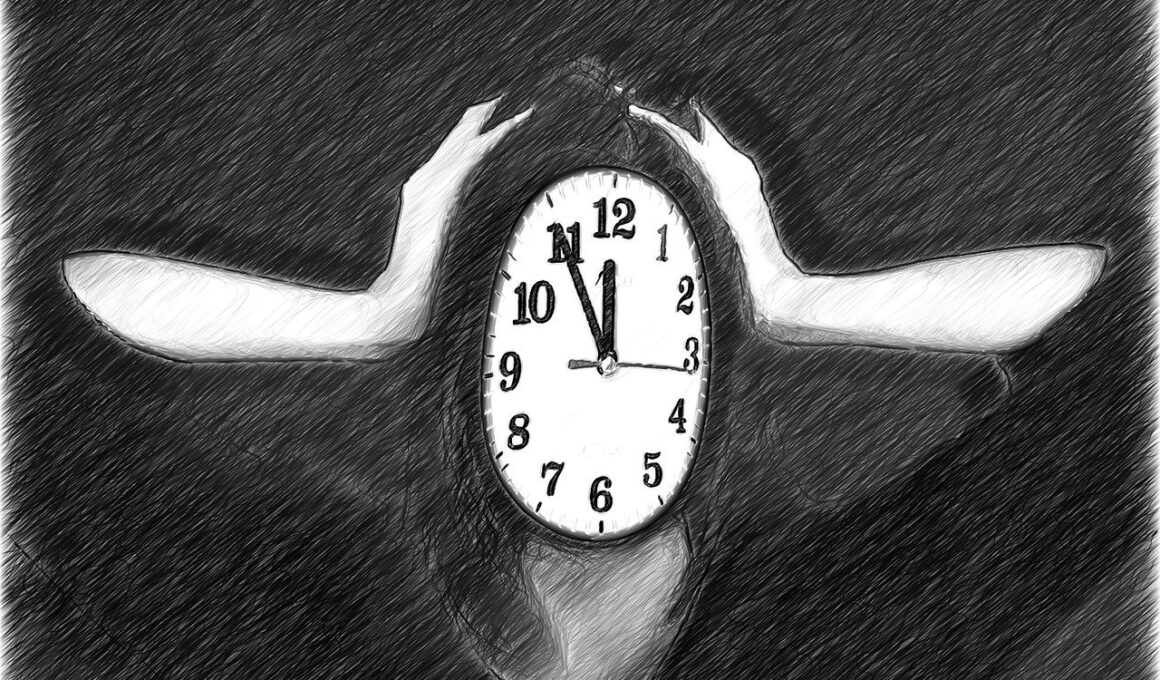The Relationship Between Stress and Overtraining Syndrome
In the realm of fitness and physical training, understanding the relationship between stress and overtraining syndrome is crucial. Overtraining syndrome occurs when there is an imbalance between training and recovery. Athletes often push their bodies to the limits, seeking to gain more strength, endurance, or speed. However, this constant pressure can lead to excessive stress, causing burnout and fatigue, both mentally and physically. Stress plays a significant role in how the body can recover from strenuous activity. When stress levels are high, various hormones, such as cortisol, can spike, leading to detrimental effects on performance. The physiological response to this excess stress can inhibit recovery, making it challenging for the athlete to return to peak performance levels. Over time, the cumulative effects of stress can manifest as overtraining syndrome, characterized by persistent fatigue, decreased performance, and even mood disturbances. Thus, recognizing signs of stress and implementing stress management techniques is vital for athletes to maintain a healthy balance in their training routines and avoid the pitfalls of overtraining syndrome.
To effectively address stress management in the context of training, athletes should consider various techniques to mitigate the effects of stress. Implementing practices such as mindfulness meditation or yoga can help reduce stress levels significantly. These techniques focus on awareness and breathing, allowing the body to relax and recover. Additionally, developing a structured training program that incorporates rest and recovery days is essential. This helps manage the cumulative stress of intense workouts and prevents burnout. Proper nutrition also plays a crucial role in stress management. A well-balanced diet rich in nutrients supports the body’s ability to cope with physical stressors. Regularly consuming foods high in omega-3 fatty acids, such as fish, can help reduce inflammation and promote mental well-being. Moreover, exercising within a controlled environment can ensure that athletes do not excessively push themselves beyond their limits. Understanding personal training thresholds and being willing to adjust workouts based on stress levels can prevent overtraining syndrome. Ultimately, combining these methods creates a comprehensive strategy to manage stress while optimizing performance.
Recognizing the Symptoms of Overtraining
Recognizing the symptoms of overtraining syndrome is essential for prevention and recovery. Athletes often overlook signs of excessive fatigue, irritability, and decreased performance as mere indications of hard work. However, understanding these symptoms allows for early intervention and adaptation of training methods. Common signs include persistent muscle soreness, sleep disturbances, and decreased motivation or enthusiasm for training. Identifying these symptoms early on can prevent the escalation of stress and its consequent impact on performance. Additionally, athletes may experience frequent illnesses due to a weakened immune response when subjected to ongoing stress. Monitoring physical and emotional responses can aid in discerning between regular fatigue from training and potential overtraining. Journaling training sessions alongside mood and energy levels can provide valuable insights into stress responses. When symptoms like prolonged fatigue or lack of progress persist, consulting with healthcare professionals may provide guidance and support. Addressing these symptoms often requires a multifaceted approach, including a focus on rest periods, stress management strategies, and physical therapy as needed for proper recovery. Enhancing awareness allows athletes to prioritize their mental health and training effectiveness.
Another vital aspect of combating overtraining syndrome is the importance of social support and communication. Engaging with coaches, teammates, or sports psychologists can enhance an athlete’s ability to manage stress effectively. Sharing experiences can lead to encouraging conversations about coping strategies tailored to one’s physical and mental challenges. These discussions help individuals realize that they are not alone in their struggles and encourage them to seek help when necessary. Building a strong support network also provides accountability in maintaining balanced training routines. This means remaining vigilant against the signs of stress and taking proactive measures before overwhelming stress takes a toll. Involving family and friends in stress management efforts provides emotional grounding and encourages healthy practices, such as relaxation techniques or fun physical activities apart from regular training. Diversifying training methods and combining different fitness modalities can also improve overall wellness and reduce mental stress. When athletes embrace a collaborative approach to stress management, they foster a culture of support and positivity that enhances performance and overall enjoyment in their physical pursuits.
Effective Stress Management Techniques
Implementing effective stress management techniques can help athletes navigate the challenges of intense training. Breathing exercises, for example, can deeply reduce stress and anxiety levels. Techniques such as box breathing or diaphragmatic breathing encourage calmness and clarity, promoting enhanced focus during workouts. Additionally, incorporating regular physical activities outside of strict training regimens can improve overall well-being. Engaging in recreational activities allows for mental relaxation and can reignite passion for fitness. Pursuing creative outlets, such as art or music, fosters emotional expression and provides a sanctuary away from the rigors of training. Another significant technique is ensuring adequate sleep and recovery periods, essential components of stress management. Poor sleep can lead to increased stress levels, dampening performance capabilities. Athletes should prioritize quality sleep hygiene by establishing a consistent sleep schedule and creating a restful environment conducive to restorative sleep. Incorporating stretching or foam rolling into daily routines improves muscle recovery and reduces tension. Creating a personalized stress management plan tailored to individual needs can empower athletes to take charge of their physical health and emotional well-being.
In conclusion, addressing the relationship between stress and overtraining syndrome is paramount for athletes looking to achieve their fitness goals. It requires a holistic approach to create a balanced training environment that acknowledges both physical and mental health. Implementing stress management techniques, recognizing symptoms of overtraining, and prioritizing recovery plays a significant role in enhancing performance and well-being. Furthermore, fostering open communication channels and building supportive relationships can create a nurturing community around athletes. This reinforces a culture of awareness and accountability, encouraging healthy practices among individuals. It is important for athletes to remember that training is not exclusively about pushing physical limits but also involves understanding oneself and being attuned to mental signals. Balancing these aspects will ultimately enable athletes to perform at their best while minimizing their risks of burnout or injury. By cultivating a mindful approach to training and emphasizing well-being, athletes can lead more fulfilled and enjoyable journeys in the world of fitness.
The journey towards optimal physical performance is intricate, intertwining the elements of mental and physical health. Athletes who disregard the importance of stress management in their routines may find themselves vulnerable to overtraining syndrome. Therefore, it is essential that each individual take proactive steps in ensuring that they create a balanced approach to training and recovery. Recognizing personal limits and informing training decisions based on stress levels can lead to sustainable fitness progress. As the field of sports continues to evolve, incorporating awareness of stress-related issues will ultimately enhance performance outcomes. Both amateur and professional athletes alike can benefit from the understanding that their mental health is as crucial as their physical strength. The relationship between stress and overtraining syndrome highlights the need for athletes to be compassionate towards themselves. Those who strive for excellence need to balance their aspirations with self-care measures to thrive in competitive sports environments. The ongoing dialogue regarding techniques and strategies for managing stress will contribute positively to the overall athletic experience, fostering resilience and longevity in sports.


